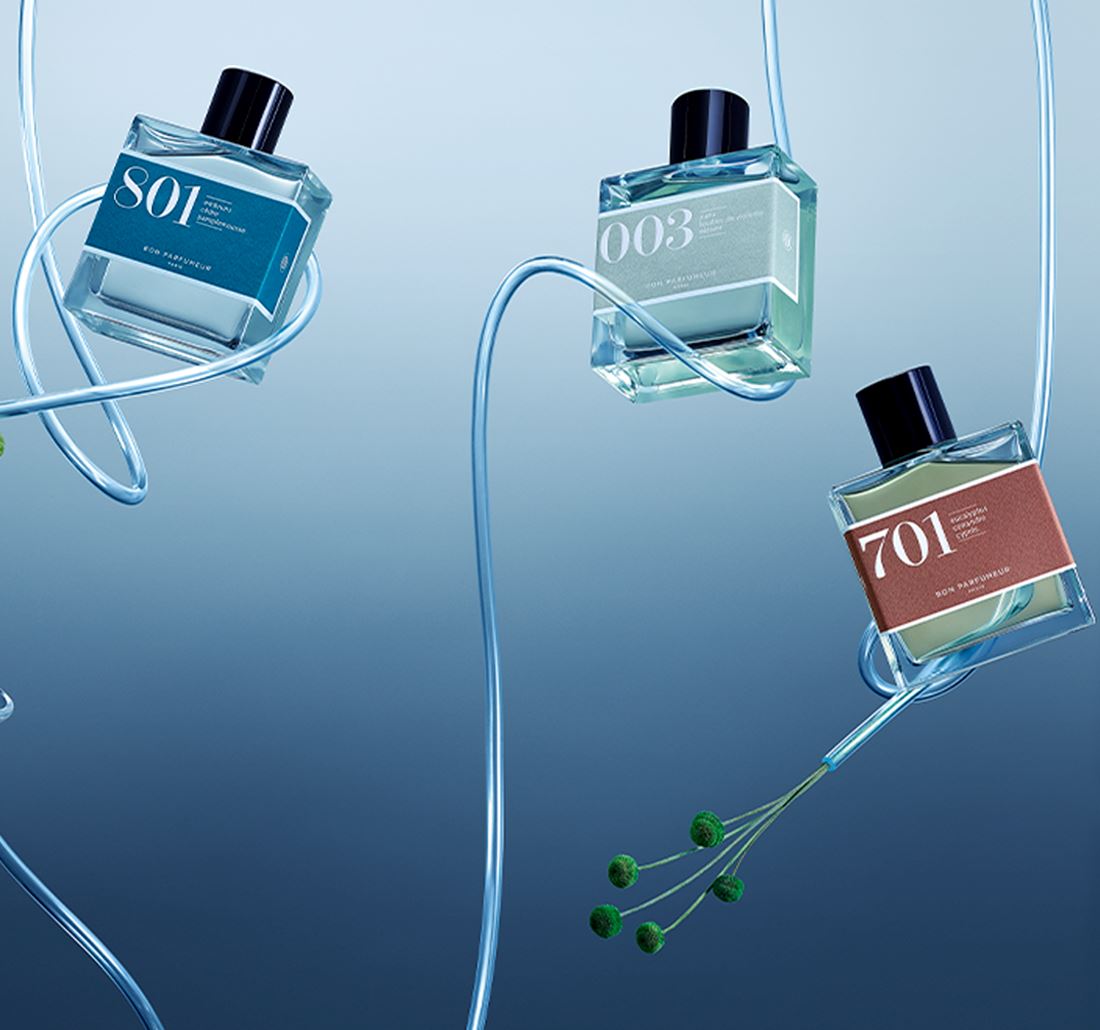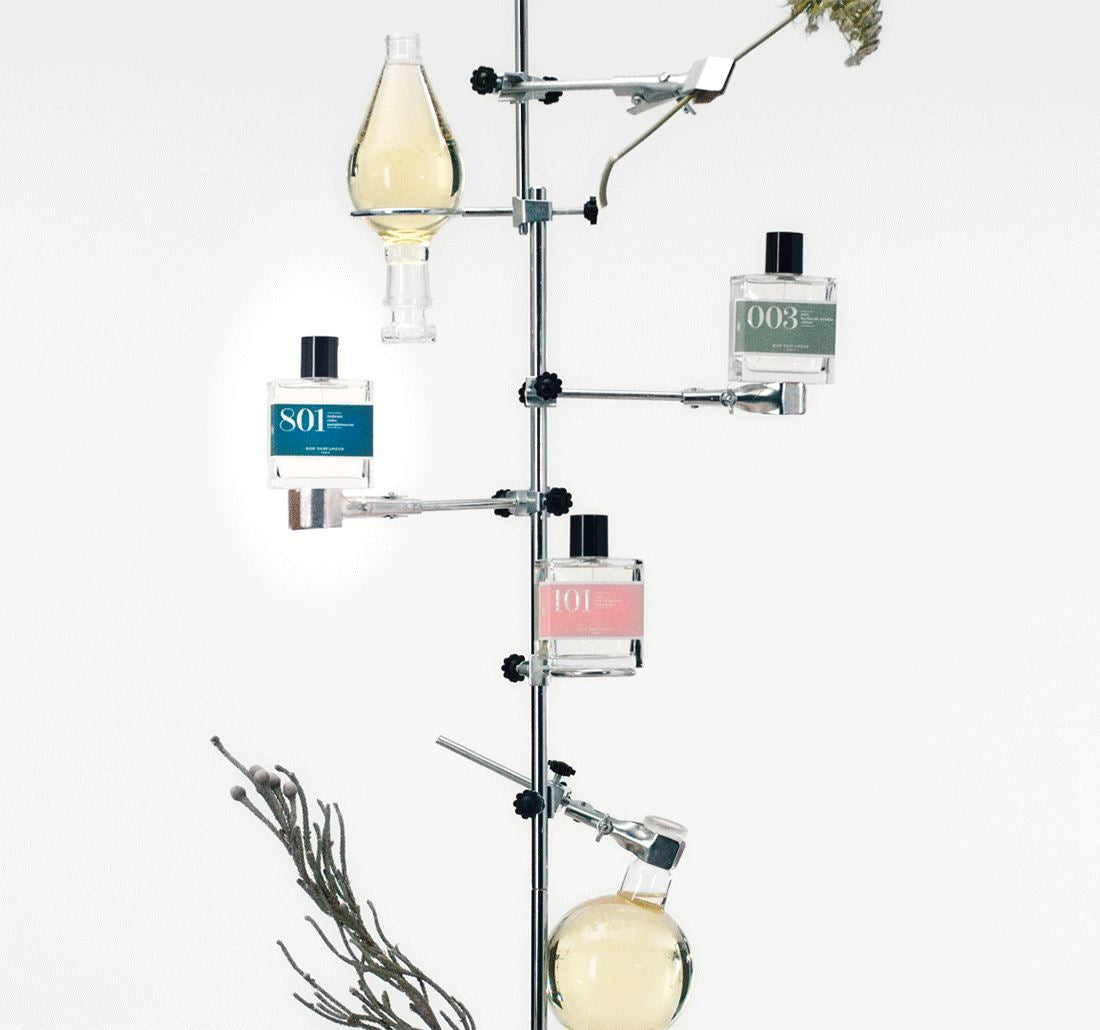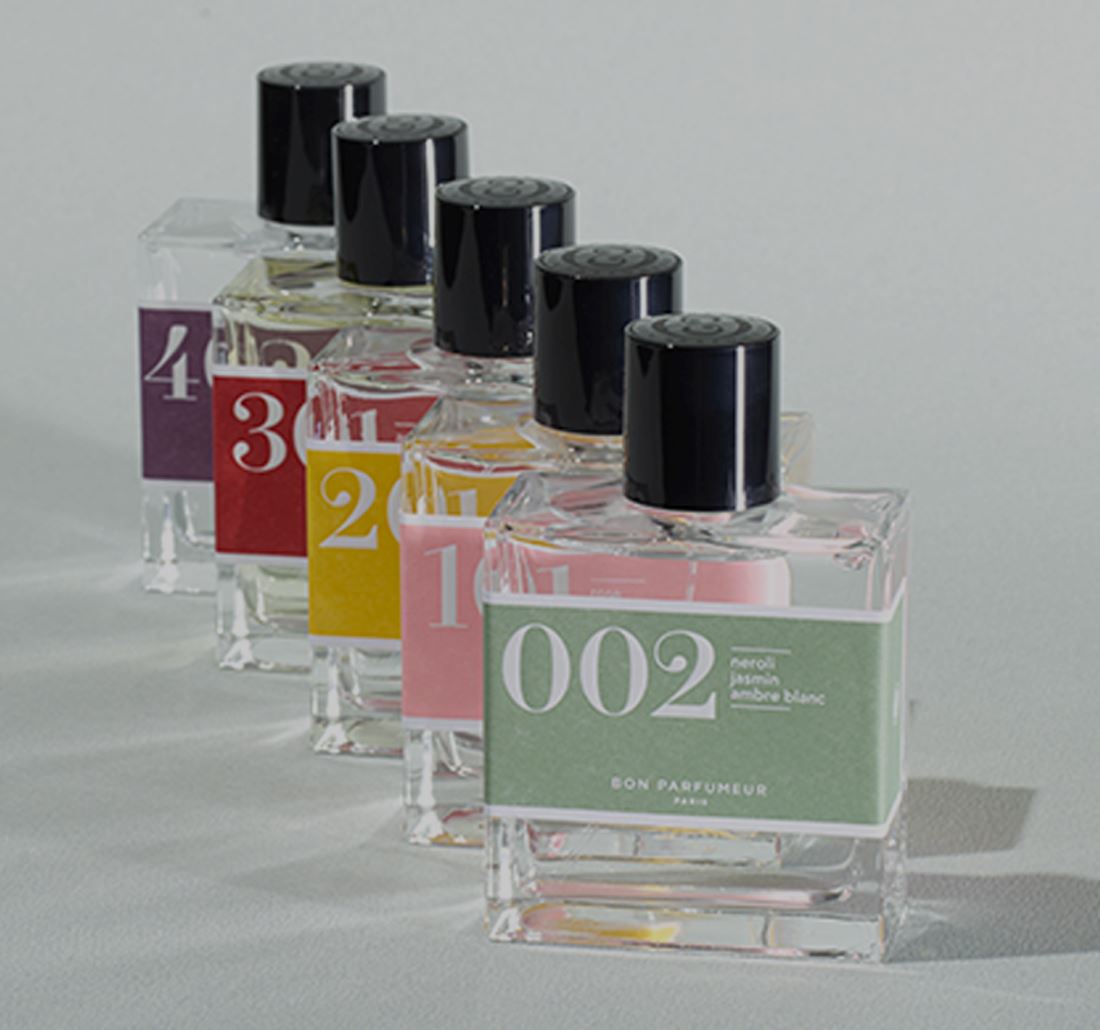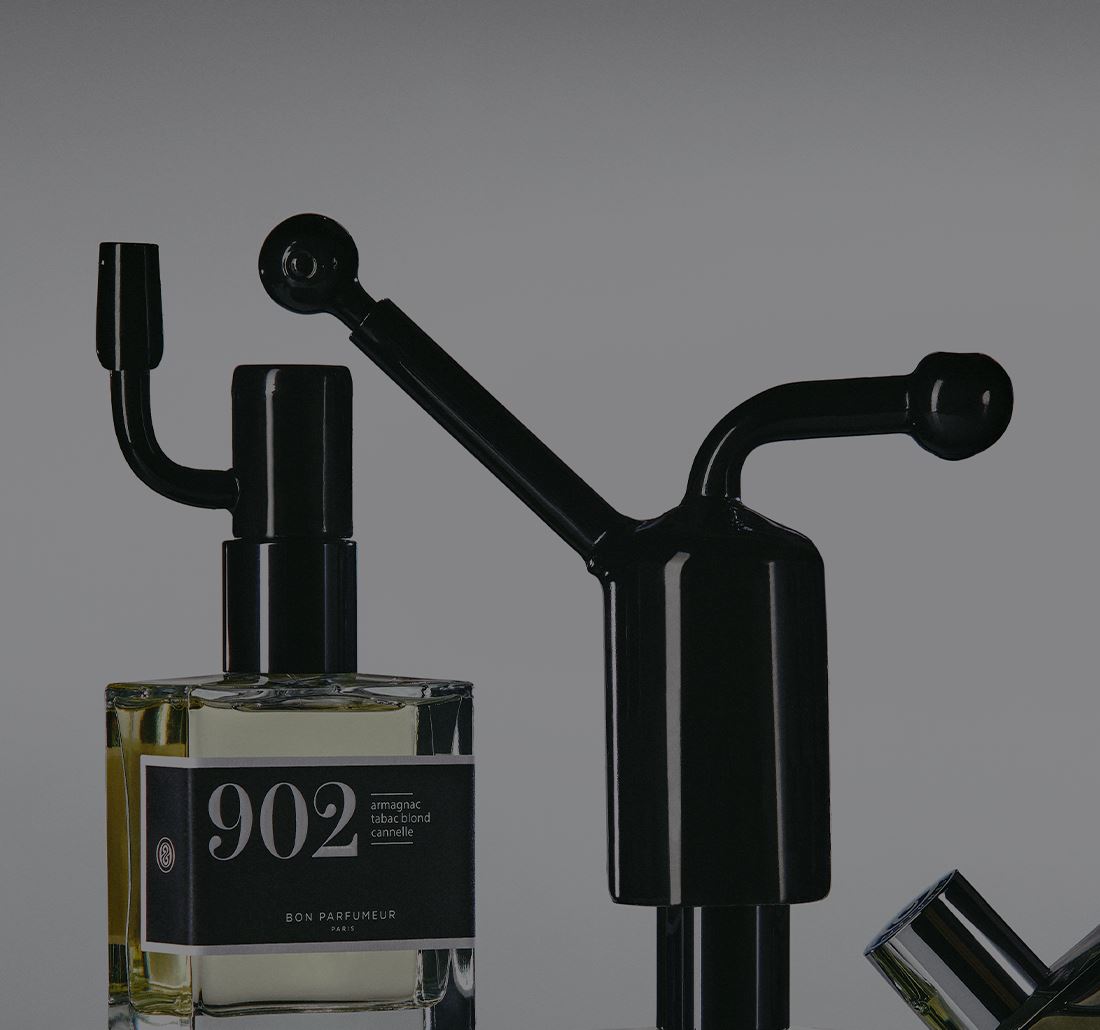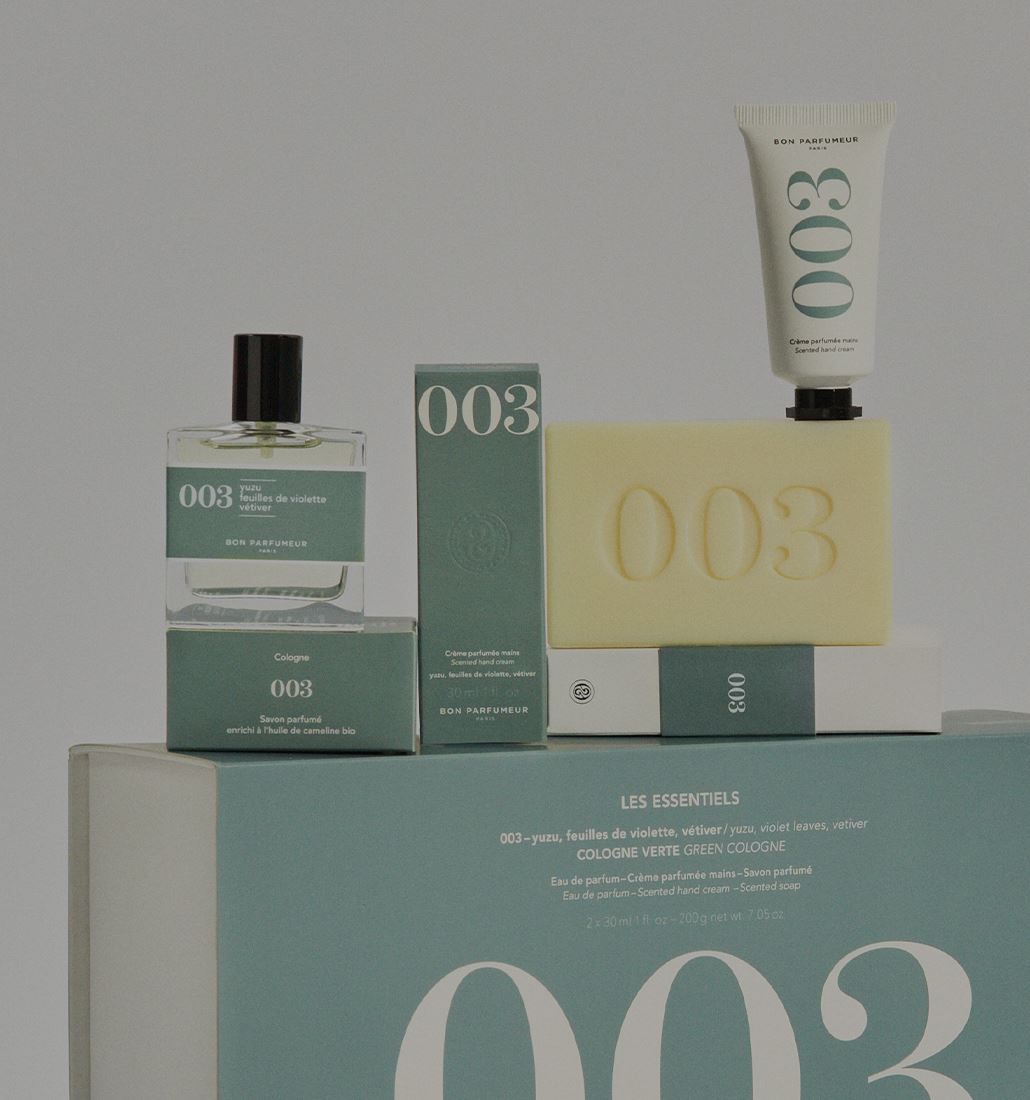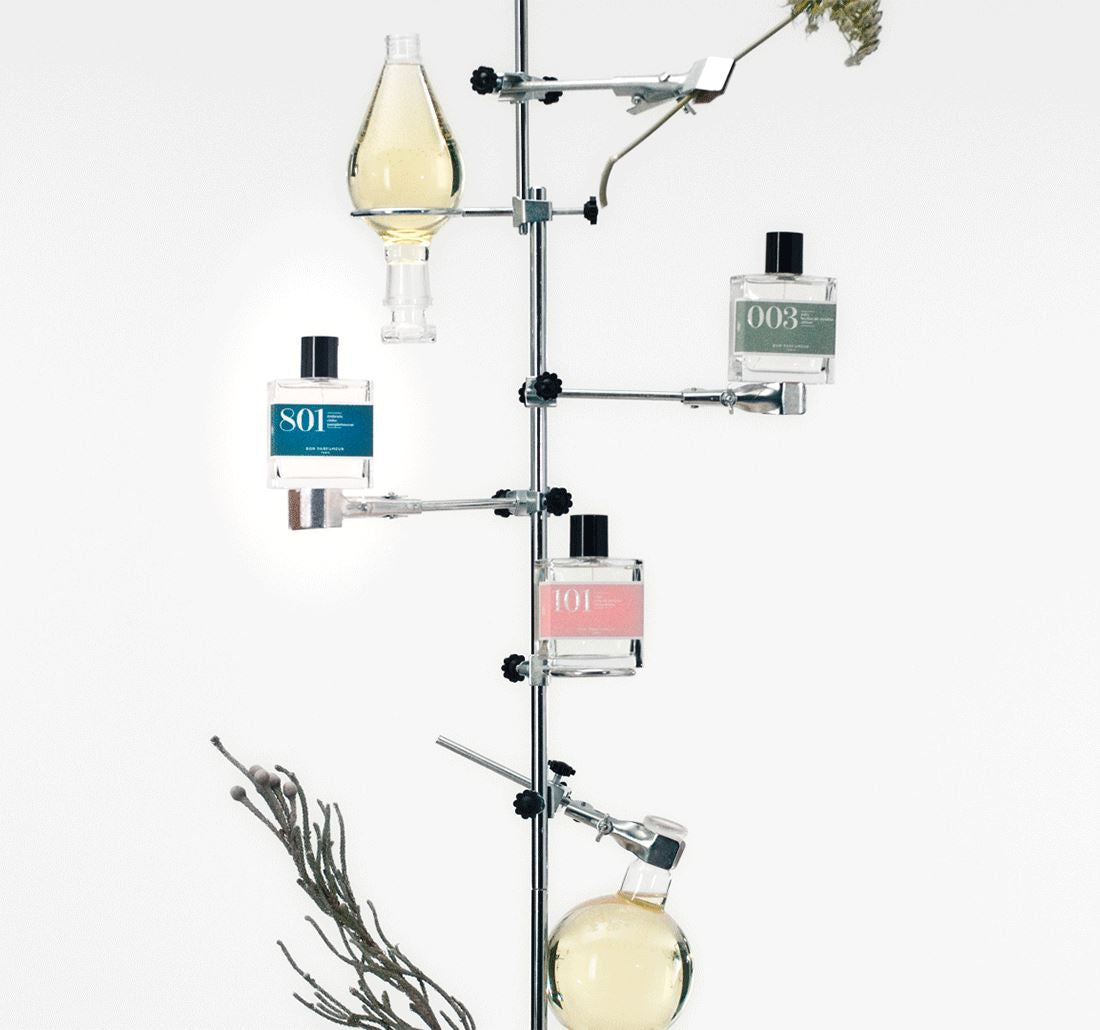Why do we talk about perfume concentration?
A perfume is made from raw materials transformed into a concentrate (an oil, in fact) which is then diluted in a mixture of water and alcohol. Each has different concentrations: the percentage of concentrate used will determine the "category" of the perfume. We then speak of eau de parfum, eau de toilette or even eau de cologne... Indeed, the concentration of a perfume will depend on the proportion of odorous molecules, also called oils, present in a composition.
The perfume extract
Parfum extract, also known as parfum, is the highest and most intense concentration of fragrance. It contains the highest fragrance content, making it the most powerful and long-lasting choice. Just a few drops of parfum extract are enough to create an enchanting aura that can last all day.
Perfume extracts offer a luxurious and opulent olfactory experience. Their high concentration allows the fragrance's complex notes and sophisticated accords to fully reveal themselves. Perfume extracts are often composed of rich, deep notes, such as exotic flowers, precious spices, and warm woody notes. They are reserved for special occasions or for perfume lovers seeking exceptional olfactory intensity.
Perfumes
Eau de parfum is a medium concentration that falls somewhere between eau de cologne, eau de toilette, and parfum, or perfume extract. This gives it a more pronounced and long-lasting fragrance. Eau de parfums offer a balance between intensity and subtlety, and their hold on the skin can last for several hours.
Eau de parfum offers a wide range of fragrances, from floral and amber notes to woody and gourmand notes. They are versatile and suitable for many occasions, whether formal or informal.
They are appreciated for their versatility and are particularly suitable for warmer seasons when you want to wear a light fragrance. They are also ideal for work environments or situations where a subtle olfactory presence is preferable.
Cologne water
Eau de Cologne is a very light concentration of perfume. It takes its name from the city of Cologne in Germany, where it was first created in the 18th century. Colognes generally contain a lower concentration of perfume, but this is not the case with Bon Parfumeur colognes! They are therefore refreshing and invigorating when applied to the skin.
In perfumery, colognes are famous for their fresh, citrusy, and aromatic notes. They are often composed of citrus fruits such as lemon, bergamot, and orange, blended with aromatic herbs such as lavender, rosemary, and mint, or flowers such as jasmine or neroli. These fragrances are light, subtle, and perfect for warm climates or casual occasions.
To learn more about cologne, visit our article!




